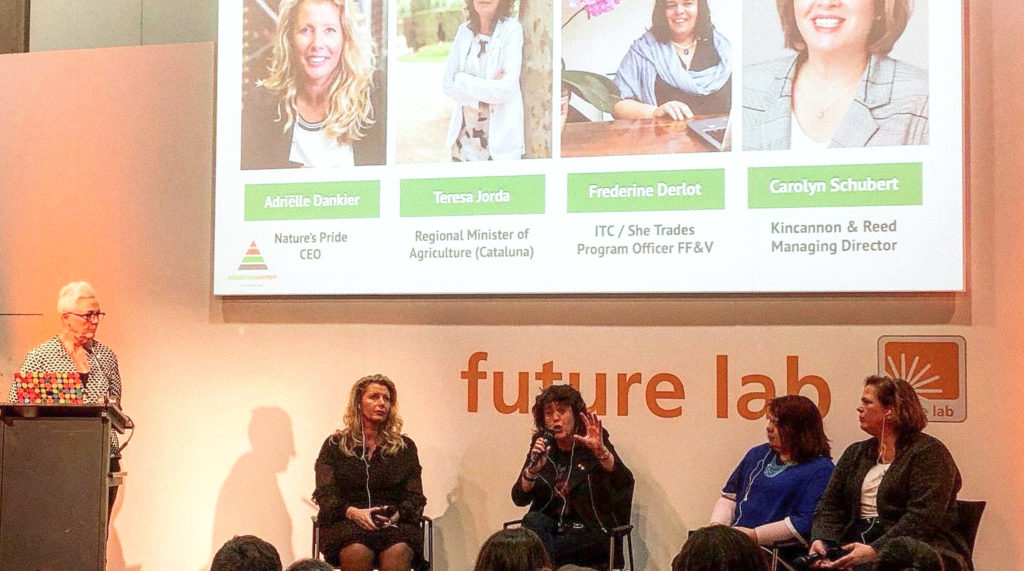
Despite growing public awareness of gender equality in the last decade, it’s estimated to take 202 years to close the gap at our current rate of progress. With such a slow projected progress rate, the importance of organisations such as Global Women Fresh to push progress in their industry is paramount.
In early February, the team at Global Women Fresh held our third Global Women’s Network event in Berlin, to discuss some of the biggest issues women are facing in the fresh industry. Joined by top executives including Frederine Derlot, Carolyn Shubert, Adriëlle Dankier from Nature’s Pride and Teresa Jordà i Roura, the Regional Minister for Agriculture of Catalonia — we discussed issues as they stand in real time in each panelists respective countries. Sharing stories of how Nature’s Pride is creating equality in the workforce, Adriëlle explores questions like “do Company Policies ultimately lead to changes in Legislation,” and “how do we manage to balance raising a family with leading a company?”
The core theme underlying all our discussions at the event was moving gender diversity from conversation to action. The benefits of this shift were discussed and included the fact that closing wage and participation gaps would add 28 trillion to the economy by 2025 according to McKinsey’s estimates — which is the equivalent size of the Chinese and US economies today. But women still do 75% of all unpaid work and worldwide, earn 16% less in average hourly wages than their male counterparts in the same job.
Solutions that were discussed included the importance of people in leadership positions taking action, because if the burden continues to be placed in the hands of those who are excluded and held back, progress will remain slow. Another solution discussed was making a visible and verbal commitment to creating gender balance in our organisations — along with confronting the cold facts about your company’s gender imbalance, so resources can be assigned to solve the problem. A shift that can be made whether we’re leaders or not, is our mindsets — because our collective mindset is what has led to gender exclusion in the first place. Educating ourselves on the ways inequality is manifest in subtle ways and shifting our mindset as individuals or a company, is key to creating equality and the prosperity that follows, not only for women, but for society as a whole.

